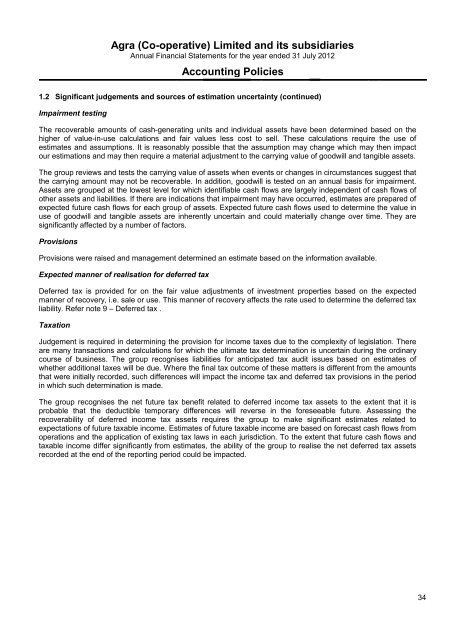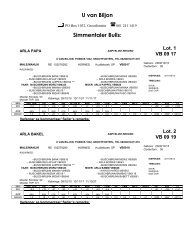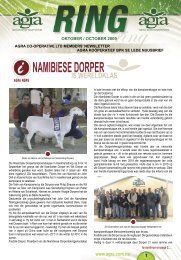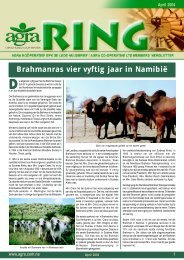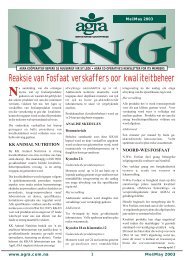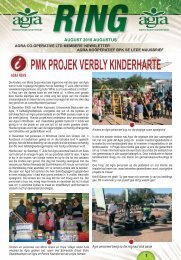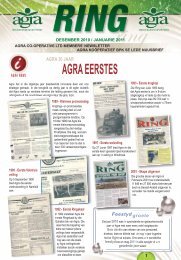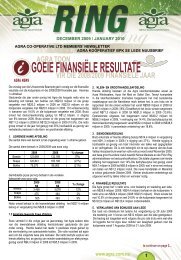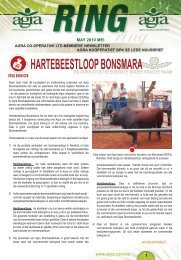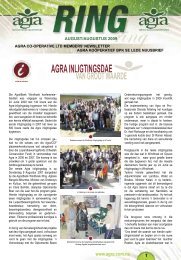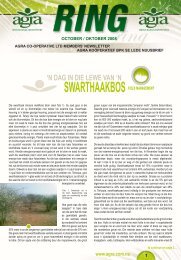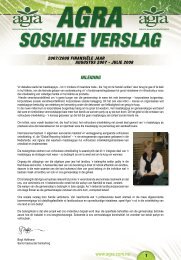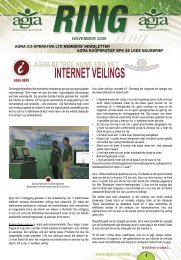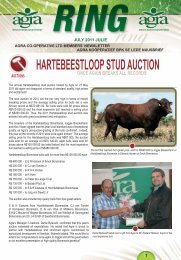Complete 2012 Annual Report - Agra
Complete 2012 Annual Report - Agra
Complete 2012 Annual Report - Agra
You also want an ePaper? Increase the reach of your titles
YUMPU automatically turns print PDFs into web optimized ePapers that Google loves.
<strong>Agra</strong> (Co-operative) Limited and its subsidiaries<br />
<strong>Annual</strong> Financial Statements for the year ended 31 July <strong>2012</strong><br />
Accounting Policies<br />
1.2 Significant judgements and sources of estimation uncertainty (continued)<br />
Impairment testing<br />
The recoverable amounts of cash-generating units and individual assets have been determined based on the<br />
higher of value-in-use calculations and fair values less cost to sell. These calculations require the use of<br />
estimates and assumptions. It is reasonably possible that the assumption may change which may then impact<br />
our estimations and may then require a material adjustment to the carrying value of goodwill and tangible assets.<br />
The group reviews and tests the carrying value of assets when events or changes in circumstances suggest that<br />
the carrying amount may not be recoverable. In addition, goodwill is tested on an annual basis for impairment.<br />
Assets are grouped at the lowest level for which identifiable cash flows are largely independent of cash flows of<br />
other assets and liabilities. If there are indications that impairment may have occurred, estimates are prepared of<br />
expected future cash flows for each group of assets. Expected future cash flows used to determine the value in<br />
use of goodwill and tangible assets are inherently uncertain and could materially change over time. They are<br />
significantly affected by a number of factors.<br />
Provisions<br />
Provisions were raised and management determined an estimate based on the information available.<br />
Expected manner of realisation for deferred tax<br />
Deferred tax is provided for on the fair value adjustments of investment properties based on the expected<br />
manner of recovery, i.e. sale or use. This manner of recovery affects the rate used to determine the deferred tax<br />
liability. Refer note 9 – Deferred tax .<br />
Taxation<br />
Judgement is required in determining the provision for income taxes due to the complexity of legislation. There<br />
are many transactions and calculations for which the ultimate tax determination is uncertain during the ordinary<br />
course of business. The group recognises liabilities for anticipated tax audit issues based on estimates of<br />
whether additional taxes will be due. Where the final tax outcome of these matters is different from the amounts<br />
that were initially recorded, such differences will impact the income tax and deferred tax provisions in the period<br />
in which such determination is made.<br />
The group recognises the net future tax benefit related to deferred income tax assets to the extent that it is<br />
probable that the deductible temporary differences will reverse in the foreseeable future. Assessing the<br />
recoverability of deferred income tax assets requires the group to make significant estimates related to<br />
expectations of future taxable income. Estimates of future taxable income are based on forecast cash flows from<br />
operations and the application of existing tax laws in each jurisdiction. To the extent that future cash flows and<br />
taxable income differ significantly from estimates, the ability of the group to realise the net deferred tax assets<br />
recorded at the end of the reporting period could be impacted.<br />
34


